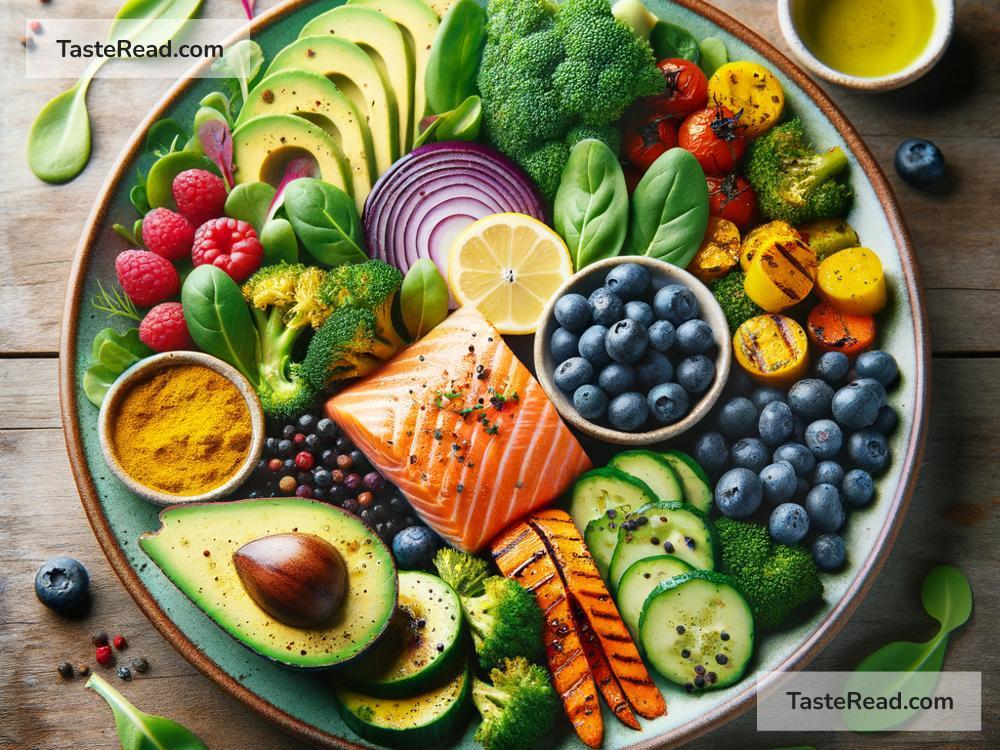The Science Behind Anti-Inflammatory Diets: Eating Your Way to Better Health
Inflammation is a natural process in our bodies. It’s like having a built-in security team that protects us when we’re injured or under attack by viruses and bacteria. When you cut your finger, for example, your body sends out a team of cells to repair the damage. This process causes redness, swelling, and pain—which is normal and necessary to heal. But problems arise when inflammation doesn’t shut off properly. Instead of helping your body heal, it sticks around like an unwanted guest, leading to diseases like arthritis, diabetes, heart disease, and even cancer.
That’s where anti-inflammatory diets come in. These diets help reduce chronic inflammation, which is when this natural response gets out of control. By eating certain foods and avoiding others, you can support your body’s ability to fight inflammation, improve your overall health, and even lower your risk for long-term illnesses. In this blog, we’ll explore the science behind anti-inflammatory diets in simple terms, so you can understand why food plays such a powerful role in keeping your body balanced.
What Causes Chronic Inflammation?
Unlike short-term inflammation that heals injuries, chronic inflammation can linger for months or even years. Scientists believe factors like stress, pollution, lack of exercise, and unhealthy foods can fan the flames of persistent inflammation. Some of the biggest culprits in diets are processed foods, sugary snacks, fried dishes, and unhealthy fats like trans fats. These foods cause your immune system to react unnecessarily, leading to higher levels of inflammatory chemicals in your body.
Imagine your immune system as a firefighter. Normally, it rushes to put out fires (protein-based “fire signals” called cytokines) when you need help. But if you’re eating inflammation-causing foods, it’s like setting a fire every day. Over time, this constant firefighting can damage tissues and organs, increasing your risk of diseases like heart problems and diabetes.
How Anti-Inflammatory Foods Work
Anti-inflammatory diets focus on foods that calm your body instead of igniting it. Think of these foods as “peacekeepers” that help lower the levels of harmful inflammatory chemicals in your system while giving your cells the nutrients they need to thrive.
Here’s how they work:
-
Rich in Antioxidants: Fruits, vegetables, nuts, seeds, and whole grains are high in antioxidants, which act like shields to fight off harmful molecules known as free radicals. Free radicals can damage cells and trigger inflammation. When you eat antioxidant-rich foods, you help neutralize these destructive molecules.
-
Good Fats: Healthy fats, especially omega-3 fatty acids found in fish, walnuts, and flaxseeds, are well-known for their anti-inflammatory effects. Omega-3s help regulate your immune system and keep inflammation signals from getting out of hand.
-
Low Glycemic Load: High-sugar foods can spike your blood sugar, causing inflammation. Foods with a low glycemic load (like whole grains, beans, and most fruits) provide energy steadily without dramatic blood sugar hikes, keeping your inflammation levels in check.
-
Nutrient-Dense: Anti-inflammatory foods are packed with vitamins, minerals, and fiber that help your body function properly. When every system is working as it should, there’s less need for your immune system to step in and trigger inflammation.
Key Foods in an Anti-Inflammatory Diet
So, what should you eat to combat inflammation? Luckily, there are plenty of delicious options! Below is a list of some of the best foods to include in your diet:
-
Fruits: Berries (blueberries, strawberries, raspberries) are loaded with antioxidants that reduce inflammation. Other fruits like oranges, cherries, and apples are also great choices.
-
Vegetables: Leafy greens (spinach, kale) and brightly colored vegetables (broccoli, peppers, tomatoes) are rich in nutrients that fight inflammation.
-
Healthy Fats: Fatty fish like salmon, mackerel, and sardines are high in omega-3s. Avocados, nuts, seeds, and olive oil are also excellent sources of anti-inflammatory fats.
-
Whole Grains: Choose whole wheat, oats, quinoa, and brown rice instead of refined grains like white bread or pasta.
-
Spices and Herbs: Turmeric, ginger, garlic, and cinnamon aren’t just tasty—they also contain compounds with anti-inflammatory properties.
-
Green Tea: This soothing drink is packed with antioxidants called catechins that help reduce inflammation.
Foods to Avoid
Not all foods are created equal when it comes to inflammation. To support your body, you’ll want to steer clear of the following:
-
Sugary Foods: Cookies, candy, sodas, and processed snacks can spike inflammation levels.
-
Refined Carbs: White bread, white rice, and pastries lack nutrients and can increase blood sugar levels quickly.
-
Trans Fats: Found in fried foods, margarine, and packaged junk food, trans fats are notorious for causing inflammation.
-
Excessive Alcohol: Alcohol can disrupt your body’s ability to keep inflammation under control when consumed in large amounts.
Scientific Backing for Anti-Inflammatory Diets
Research shows that people who follow anti-inflammatory diets, like the Mediterranean diet, tend to have lower markers of inflammation in their bodies. For example, studies suggest that eating more omega-3-rich fish and antioxidant-packed vegetables can reduce your risk of chronic diseases like heart disease, arthritis, and even Alzheimer’s.
Some scientists believe that anti-inflammatory diets have the potential to slow down aging, as chronic inflammation is linked to age-related damage in cells. By choosing foods that fight inflammation, you’re giving your body the best chance to stay strong and healthy for years to come.
Final Thoughts
The science behind anti-inflammatory diets is simple: what you eat impacts how your body responds to inflammation. By choosing nutrient-rich, whole foods like fruits, veggies, healthy fats, and whole grains, you can keep inflammation under control and lower your risk for chronic diseases. At the same time, avoiding sugary, processed, and fried foods can prevent unnecessary flare-ups in your immune system.
Healthy eating doesn’t have to be complicated. Start by making small swaps, like cooking with olive oil instead of butter or snacking on nuts instead of chips. Over time, these simple changes can make a big difference in how your body feels and functions. With the right choices, an anti-inflammatory diet can be your first step toward a happier and healthier life!

